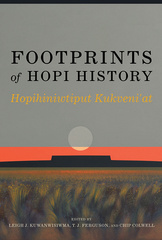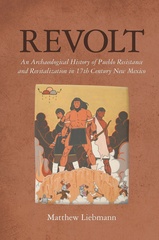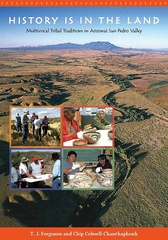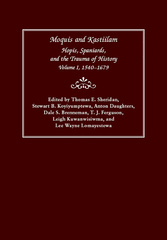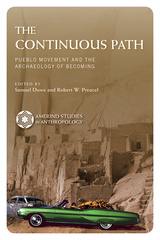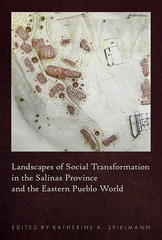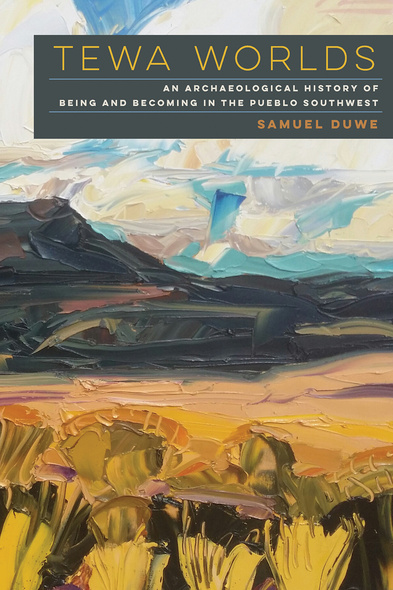
Tewa Worlds
An Archaeological History of Being and Becoming in the Pueblo Southwest
Tewa Worlds tells a history of eight centuries of the Tewa people, set among their ancestral homeland in northern New Mexico. Bounded by four sacred peaks and bisected by the Rio Grande, this is where the Tewa, after centuries of living across a vast territory, reunited and forged a unique type of village life. It later became an epicenter of colonialism, for within its boundaries are both the ruins of the first Spanish colonial capital and the birthplace of the atomic bomb. Yet through this dramatic change the Tewa have endured and today maintain deep connections with their villages and a landscape imbued with memory and meaning.
Anthropologists have long trekked through Tewa country, but the literature remains deeply fractured among the present and the past, nuanced ethnographic description, and a growing body of archaeological research. Samuel Duwe bridges this divide by drawing from contemporary Pueblo philosophical and historical discourse to view the long arc of Tewa history as a continuous journey. The result is a unique history that gives weight to the deep past, colonial encounters, and modern challenges, with the understanding that the same concepts of continuity and change have guided the people in the past and present, and will continue to do so in the future.
Focusing on a decade of fieldwork in the northern portion of the Tewa world—the Rio Chama Valley—Duwe explores how incorporating Pueblo concepts of time and space in archaeological interpretation critically reframes ideas of origins, ethnogenesis, and abandonment. It also allows archaeologists to appreciate something that the Tewa have always known: that there are strong and deep ties that extend beyond modern reservation boundaries.
... Tewa Worlds ... stands out as exemplary in its investigative scope, rich and thought-provoking interpretations, and focus on establishing a deep history from the archaeological and ethnographic record.'—Thatcher A. Rogers, New Mexico Archeological Council
‘This book is a deeply thoughtful consideration of Tewa history, putting archaeology and anthropology in dialogue with Tewa epistemology. In addition, it is beautifully written with an engaging style that will make it readable to a wide audience. I predict that it will make a major mark in southwestern archaeology.’—Robert W. Preucel, editor of Archaeologies of the Pueblo Revolt: Identity, Meaning, and Renewal in the Pueblo World
'Duwe’s project is to present an archaeological history but give heritage its due, by 'keeping an open but critical mind when thinking of the many ways to understand history, and accepting that I might have gotten things wrong.' In the end this sounds like a description of responsible research.'—Erina Gruner, Kiva, Journal of Southwestern Anthropology and History
Acknowledgments
1. Always Becoming
2. The Tewa World
3. Archaeological Encounters
4. Winter and Summer People
5. The Center and the Edge
6. The Walls Are Never Vagrant
7. Seeking Life
References
Index




